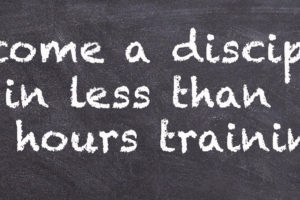“Do you not know that those who run in a race all run, but one receives the prize? Run in such a way that you may obtain it.” (1 Cor. 9:24)
As far as running is concerned, the Church can be divided into two groups: those that run, and those that don’t. Those that run usually do so because they are inspired, motivated, or provoked. It follows that those who don’t run lack inspiration, motivation, or provocation.
Now the group that runs can also be divided into two subgroups, namely, those who run fast, and those who run slow. At first glance it seems the former subgroup have a huge advantage over the latter, but as strange as it may appear it is this apparent “advantage” I want to call into question, or at least, to dissect it in view to consider its possible flaws.
A revealing story
Before I proceed I would like to invite you to read a little story from which some conclusions can be drawn. It is found in Second Samuel:
Now the three sons of Zeruiah were there: Joab and Abishai and Asahel. And Asahel was as fleet of foot as a wild gazelle. 19 So Asahel pursued Abner, and in going he did not turn to the right hand or to the left from following Abner. 20 Then Abner looked behind him and said, “Are you Asahel?” He answered, “I am.” 21 And Abner said to him, “Turn aside to your right hand or to your left, and lay hold on one of the young men and take his armor for yourself.” But Asahel would not turn aside from following him. 22 So Abner said again to Asahel, “Turn aside from following me. Why should I strike you to the ground? How then could I face your brother Joab?” 23 However, he refused to turn aside. Therefore Abner struck him in the stomach with the blunt end of the spear, so that the spear came out of his back; and he fell down there and died on the spot. So it was that as many as came to the place where Asahel fell down and died, stood still.” (2 Sam. 2:18–23)
A few remarks
From this little story I would like to present a few observations that are of value in the spiritual realm:
First remark: While speed is advantageous for some, it might be disadvantageous for others. In the little story we just read, speed would have been advantageous for Abner, but it was not so for Asahel.
Second remark: It’s possible that the one who runs the fastest loses the quickest. For instance, Asahel ran faster than Joab and Abishai, but he was the first one to lose the race.
Third remark: Back in the days, the wisest man the world had seen had noticed that: “The race is not to the swift or the battle to the strong”. (Eccl. 9:11)
Then we have Paul praising the Galatians not for running fast but for running well (Gal. 5:7). And speaking about running in view to win the race he writes: “Therefore I run thus: not with uncertainty” (1 Cor. 9:26). He doesn’t say: “Therefore I run thus: as fast as possible.” And in our opening text we read: “Do you not know that those who run in a race all run, but one receives the prize? Run in such a way that you may obtain it.” (1 Cor. 9:24) Here Paul doesn’t say: “Run as fast as possible that you may obtain it.”
I write these little remarks because we are living in a world in which speed is regarded as extremely advantageous, and it seems this unconvincing assessment has influenced many well-intended Christians. So we run and run fast, and this with the best intention in mind, without considering at times the rules and regulations of the race. The statement of Paul is still valid nowadays:
If anyone competes in athletics, he is not crowned unless he competes according to the rules.” (2 Tim. 2:5)
Here Paul is transferring an athletic principle to the Christian life, for we, Christians, can be tempted at times to break a few regulations in view to arrive first. The seekers of human-glory are especially vulnerable in this area, for the velocity in which “results” are obtained is regarded as a sign of great spirituality and stirs up the applauses of much of the evangelical world. Paul’s words should incite some introspection when he writes: “Nor did we seek glory from men, either from you or from others” (1 Thess. 2:6). This rule of competition is often broken, and broken in the name of “spiritual zeal”. When this happens, the final result can be as deceptive as the “victory” of Ben Johnson at the 1988 Summer Olympics, from which he was eventually disqualified and stripped of the gold medal.
The major mistake of Asahel
“Learning from history” has become a cliché that is often unpracticed and little considered. After all, the story of Asahel should stand as a perpetual reminder that the race is not to the swift.
For instance, we are told that “Asahel was as fleet of foot as a wild gazelle” (2 Sam. 2:18), but we are also told that one of the reasons he ran faster than the rest was the fact that he had no armor on:
Are you Asahel?” He answered, “I am.” 21 And Abner said to him, “Turn aside to your right hand or to your left, and lay hold on one of the young men and take his armor for yourself.” But Asahel would not turn aside from following him. 22 So Abner said again to Asahel, “Turn aside from following me. Why should I strike you to the ground?” (2 Sam. 2:20–22)
Asahel was so focused on speed that he gave little importance to the rest. His perseverance in running without armor can rightly be regarded as utter foolishness, a foolishness that has survived until our present days. Asahel could have yielded to the counsel of Abner and take the armor of one of the young men. But somehow he had no time for this sort of preparation. For him, running fast was “the” thing to do. Today the same mentality exists: “Why should I waste time in the prayer closet? If I go there others will cross the final line before me.” This sort of mind-set can only lead its subject to a waste of precious time.
In brief, it is more important to run well than to run fast, and above all, to run circumspectly and wisely as one who will give an account of himself to God (Rom. 14:12).
If you think this post can help somebody you can share it with the options presented bellow.













